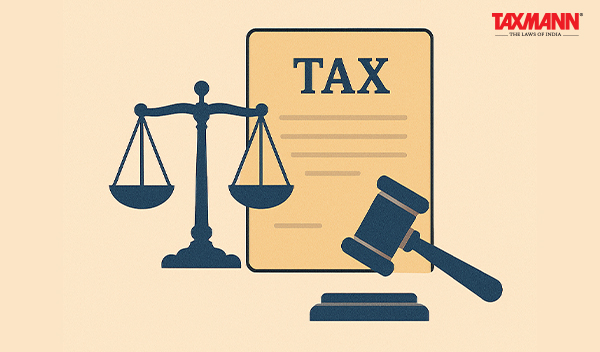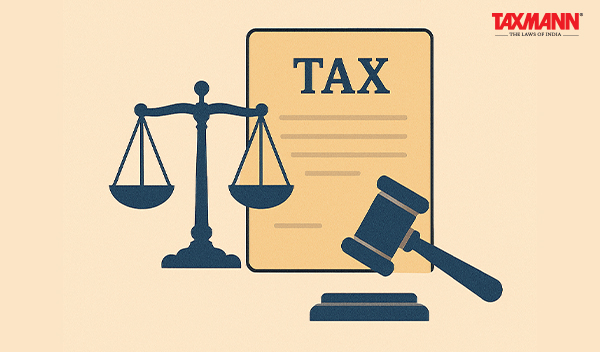
S. Krishnan – [2025] 174 taxmann.com 361 (Article)
1. Introductory Remarks
The Legislature while taxing capital gains, arising from transfer of a capital asset, apart from providing deductions under section 54 of the Income-tax Act (the Act) and other allied sections, firstly provides deduction under section 48(i) of the Act in respect of expenditure incurred wholly and exclusively in connection with transfer of such capital asset. Sometimes claiming of this deduction gives raise to tax disputes between the Revenue and the assessees. The Judicial Authorities then have to resolve the disputes through analytical decisions. One such dispute with regard to the claim made by the assessee under section 48(i) of the Act arose before the Madras High Court in the case of Smt. A. Rita v. CIT [2025] 173 taxmann.com 921 (Madras) wherein the High Court held that where the assessee purchased property under sale deed but title vested with vendors’ sisters, and the assessee paid Rs. 33 lakhs under court-approved compromise to clear title, such amount formed part of cost of acquisition and was deductible under section 48 of the Act. This decision of the Madras High Court has been discussed in this article.
But before analysing this decision of the Madras High Court let us refer to an earlier decision of the Madras High Court in the case of CIT v. Bradford Trading Co. (P) Ltd. [2002] 125 Taxman 632/[2003] 261 ITR 222 (Mad.) which is the forerunner to the decision in the case of Smt. A. Rita (supra).
2. Analysis of the decision in the case of Bradford Trading Co. (P) Ltd. (supra)
In this case where the assessee, a private limited company, transferred a building belonging to it, a suit was filed by one of the shareholders, who had contributed a sum to the company towards share capital and the matter was taken to the Court and finally settled by payment of Rs. 2 lakhs over and above the amount contributed by him towards his share in the share capital of the company.. The Tribunal allowed such a claim of the assessee under section 48 (i) of the Act which view was endorsed by the High Court by holding that it was deductible.
The Madras High Court in this case [Bradford Trading Co. (P.) Ltd. (supra)] had explained the decision of the Supreme Court in the case of R.M. Arunachalam v. CIT [1997] 93 Taxman 423/227 ITR 222 in the following words:
“The distinction pointed by the Supreme Court in R.M. Arunachalam (supra) is that where the assessee acquired property subject to mortgage and later on it was discharged at the time of transfer by vendee, then, it would become an expenditure incurred in connection with the transfer, and where the assessee himself created the mortgage after acquisition of capital asset, the amount would not go to reduce the full value of consideration received by the assessee”
3. Facts of the case in Smt. A. Rita (supra) and decision of lower authorities
The assessee had purchased a property under a registered deed dated 22nd January, 1980. However, the vendors ‘title to the property was under litigation with their sisters, who successfully claimed title up to the High Court. In execution proceedings, a compromise was entered into on 7th October, 2005, whereby the assessee paid Rs. 33 lakhs to the sisters to perfect her title. Subsequently, the assessee sold the property on 26th October, 2007 pertaining to the Assessment Year 2008-09 and while offering capital gains claimed the amount paid to sisters as deduction under section 48(i) of the Act in her return for the assessment year being expenditure incurred wholly and exclusively in connection with such transfer. The Assessing Officer disallowed the claim being of the view that the amounts paid as compensation did not constitute expenditure which could be allowed in the computation of capital gains. On appeal, the Commissioner of Income-tax (Appeals) accepted the assessee’s claim based on documentary evidence including court orders and the compromise deed and therefore allowed the appeal of the assessee.
The Tribunal, on appeal by the Revenue [ITA No. 904/Mda/2012-Order dated 30th January, 2013] reversed the order of the Commissioner of Income-tax (Appeals) by holding that
“————- the title of the property sold had never undergone any modification so as to include the names of the names of two payees in question. In other words, the assessee continued to act as its sole and absolute owner and whatever happened after the execution of the sale deed is at best, a case of mere application of the (sale) consideration money, which is not allowable item under section 48 of the Act.”
Click Here To Read The Full Article
The post [Opinion] Madras HC Clarifies Section 48(i) Capital Gains Deduction appeared first on Taxmann Blog.
